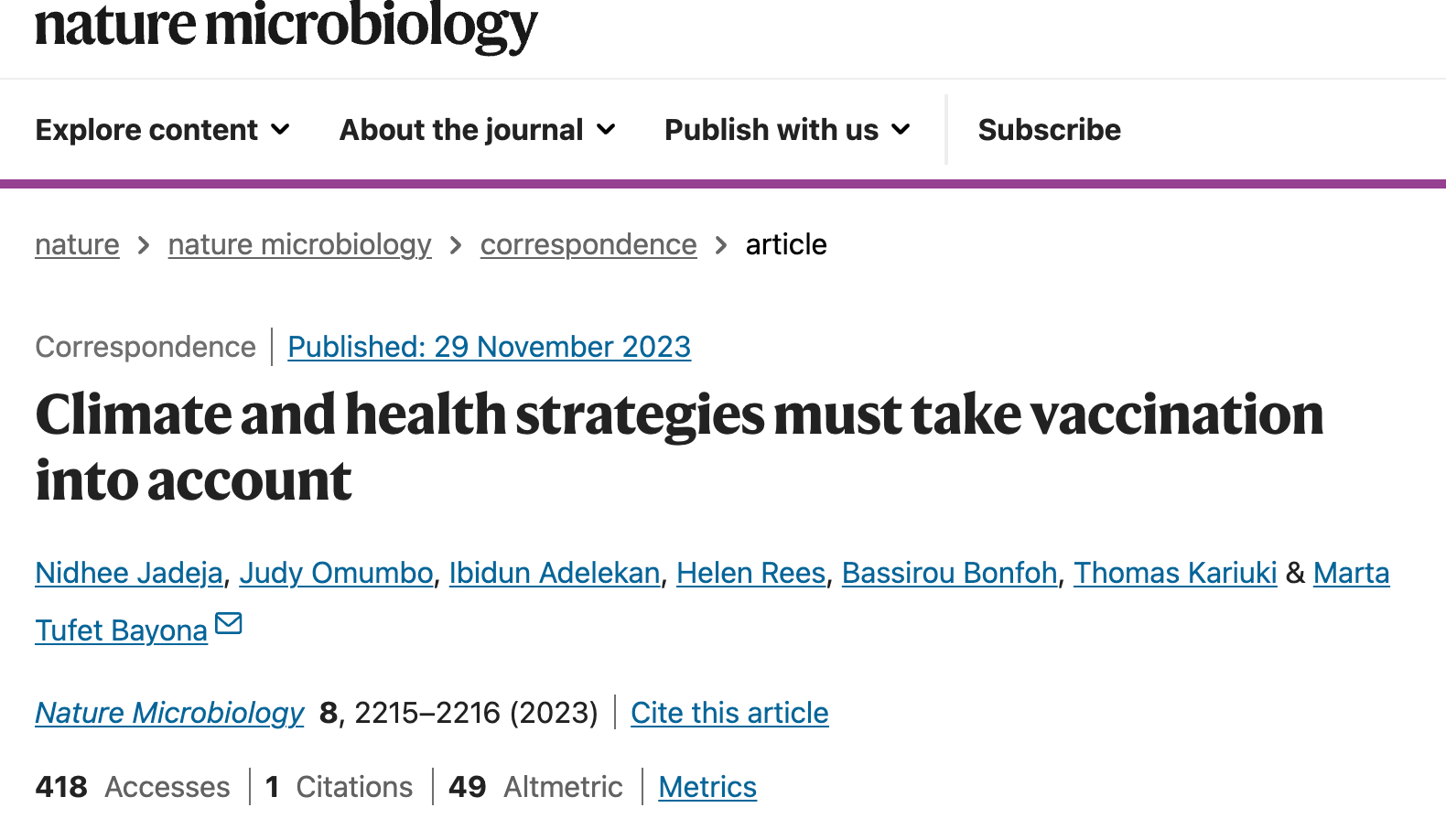
Media Centre
Climate and health strategies must take vaccination into account
Wednesday, November 29, 2023

Source: nature microbiology
Climate-driven shifts in temperature, precipitation and nutrient availability are altering the transmission and distribution of human, animal and plant pathogens. More than half of all infectious diseases that affect humans are aggravated by climate change, with low- and middle-income countries (LMICs) bearing a ten-times-higher burden of infectious diseases than their affluent counterparts1,2. Despite contributing little to its causes, LMICs are disproportionately vulnerable to the consequences of climate change, as they are situated in the world’s warmest regions, are heavily reliant on natural resources and have limited capacity to handle climate extremes3. These vulnerabilities, compounded by inequalities linked to gender, ethnicity and income, converge into a ‘perfect storm’ of climate-driven infectious disease challenges; another reminder that the climate crisis is a health crisis.
Rising temperatures and extreme weather events disrupt vaccine distribution, weaken health systems and displace populations, increasing the susceptibility of vulnerable communities to infectious disease outbreaks. This complicates the task of ensuring the consistent and equitable delivery of vaccines. In countries facing conflict and humanitarian crises, vaccination rates across both humans and livestock are often alarmingly low. Approximately one-fifth of zero-dose children, defined as those who have not received any routine vaccines, live in conflict settings4.



